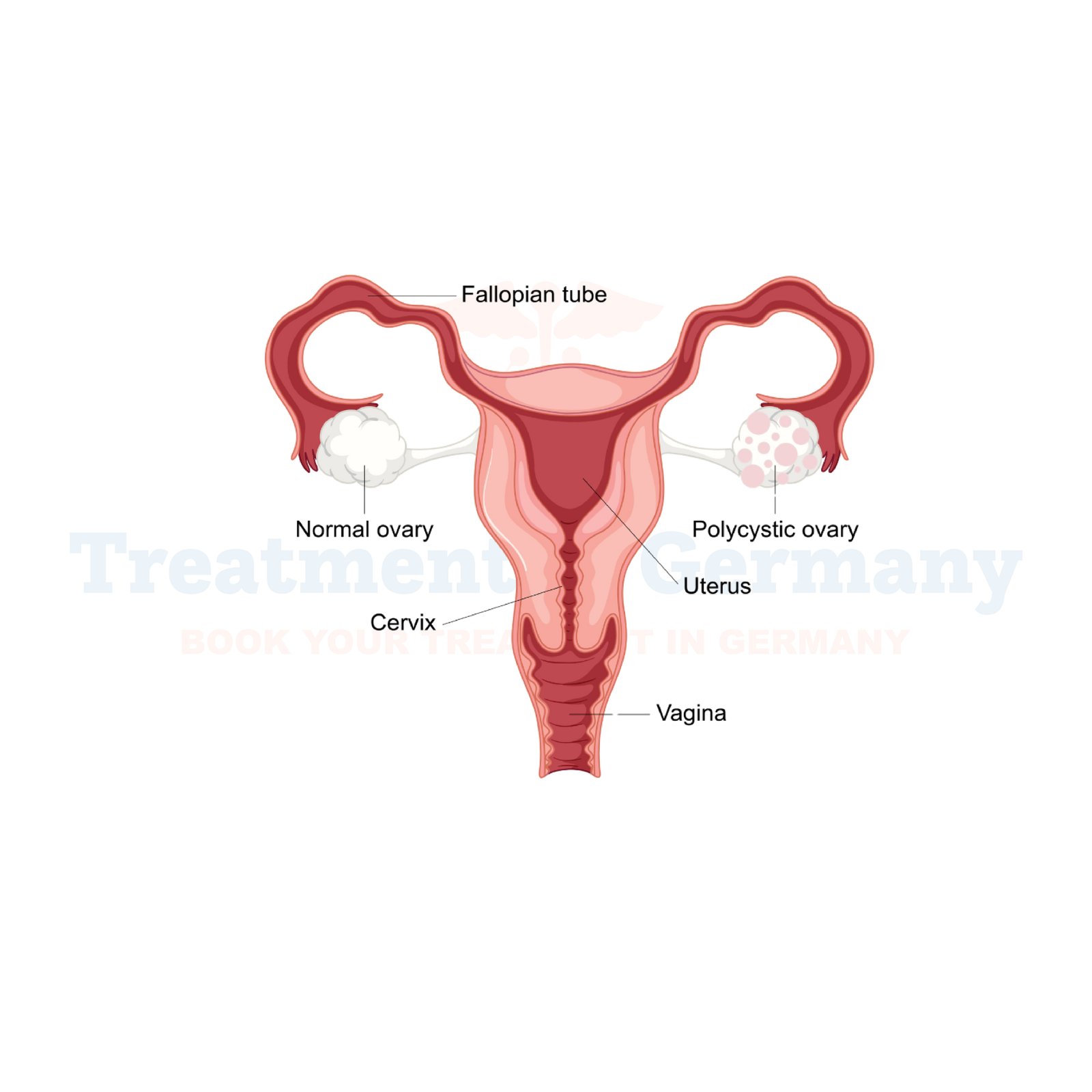What is Polycystic Ovary Syndrome (PCOS):
Polycystic Ovary Syndrome (PCOS) is a hormonal disorder common among women of reproductive age.
It occurs when the ovaries produce an imbalance of hormones, particularly an excess of androgens (male hormones), which can disrupt the normal menstrual cycle and lead to various symptoms.
Side effects of Polycystic Ovary Syndrome (PCOS):
PCOS can manifest in a variety of symptoms, including irregular periods or absence of menstruation, excess hair growth on the face or body (hirsutism), acne, and weight gain or difficulty losing weight.
Long-term complications may include infertility, type 2 diabetes, cardiovascular disease, and endometrial cancer if left untreated.
How is Polycystic Ovary Syndrome (PCOS) diagnosed?:
Diagnosing PCOS typically involves a comprehensive evaluation by a healthcare provider.
This may include a review of medical history, a physical examination, blood tests to measure hormone levels (such as testosterone and insulin), and imaging tests like pelvic ultrasound to examine the ovaries for cysts or other abnormalities.
It's essential for patients to communicate openly with their healthcare provider about their symptoms and concerns to ensure an accurate diagnosis.
Potential treatments of Polycystic Ovary Syndrome (PCOS):
Treatment for PCOS aims to manage symptoms and reduce the risk of long-term complications. Depending on individual needs and goals, treatment options may include:
👉 Contact us for further information and receive acomplimentary consultation.


.webp)
 (1).webp)

.webp)
 (1).webp)


.webp)
 (1).webp)

.webp)
 (1).webp)
